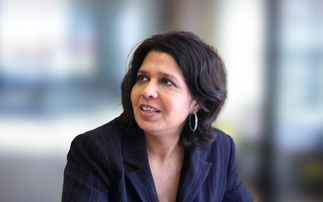How difficult is it to achieve a net zero investment portfolio? On the face of it, the trend is favourable.
A diversity of approach matters. Kholsa puts forward the example of a 95-year-old person decarbonising per their risk objectives being very different from a 40-year-old looking to save for her children's tertiary education costs. Achieving Net Zero in aggregate is still possible.
But to achieve the 1.5oC goal of the Paris Agreement may need a carbon tax and energy transformation sooner rather than later. The question then becomes whether companies are ready to take on the subsequent shocks to their balance sheets, and whether investments are de-risked to these shocks.
It is against this backdrop that Carlo Funk, EMEA head for ESG investment strategy at State Street Global Advisors, believes the debate over engagement versus divestment is going to intensify.
When looking at the MSCI World index and considering the number of companies associated with fossil fuels the current state of play means that if an investor wished to reduce exposure to zero, they would need awareness that they are pretty much excluding the entire energy sector.
There follows two theoretical questions, Funk argues. Firstly, what happens if investors take a hard stance from one day to the next and cut off energy from capital markets - meaning, for example, the Amazon order will not arrive tomorrow, and there would be implications at the societal level.
And secondly, will energy companies be helpful in the long run if investors jumped to 2050 and looked back, and asked whether they could transition to renewable energy companies - the answer is probably 'yes, but not all of them'.
"This is where the nuance is important and understanding this is so important from an asset allocation perspective," Funk explains.
"For example, in terms of how deep a person wishes to 'move the dial', such as down to zero on fossil fuels, then they need to understand it will explode an entire sector.
"Or, does a person wish to identify which companies are best at making the change, and keep a foot in the door for focused engagement."
Investors may have their own views on this, but they will ask SSGA for options, Funk notes. Having these conversations will generally lead to some decisions and reallocations. Investors and asset managers absolutely have a role to play in the change, he stresses.











